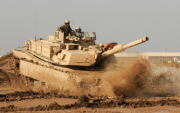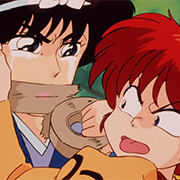|
Magnetic North posted:So I only know the broad strokes of WWI, and I know it was a stupid clusterfuck of alliances and new horrible weapons. But I'd still be curious to see the thread try to argue with sincerity what the best possible thing to come out of WWI was. The relative position of women in European societies improved first as men were off to front and there was a shortage of workers, allowing women to gain own income, and then because millions of men were permanently removed or crippled. After the war several countries gave women voting rights. Not to say that improvements were always permanent, but it seems to have sped things up. Well, it still took WW2 for French women to gain egalite...
|
|
|
|

|
| # ? Jun 3, 2024 13:31 |
|
Just seen an advert for an honest to god Korean War film called Devotion, anyone heard anything about it?
|
|
|
|
Bunch of nations got their independence as Russian empire collapsed.
|
|
|
|
Infant mortality declined drastically in India and the former Russian Empire due to political changes stemming from World War I. The clean water reforms implemented by the Indian National Congress saved millions of lives per year.
|
|
|
|
Alchenar posted:
You can't really compare 1918 and 1945, though. 1918 ended with a revolution, in 1945 fascist Germany thought to the bitter end. A less lenient peace in 1918 would have probably crushed the revolution and ended with something really stupid, like the Brits imposing a new, constitutional monarchy on top of Germany. The sad result would have been an even faster failure of the imposes German state and maybe even balkanization of middle europe, ending in even worse wars and conflicts down the road.
|
|
|
|
Libluini posted:You can't really compare 1918 and 1945, though. 1918 ended with a revolution, in 1945 fascist Germany thought to the bitter end. Why would that be worse? 1870 didn't result in france invading all their neighbours.
|
|
|
|
Alchenar posted:
Missed your edit. No, that's not the conclusion that people came to, or at least way too simple of an explanation. That was Morgenthau's argument, and it was vigorously opposed by a bunch of people in both the UK and US. Anthony Eden comes to mind, but there were a ton in Roosevelt's admin who thought it would be a disaster. It kind of got some legs when Truman signed JCS1067, but that wasn't dismemberment so much as it was forbidding the military from aiding the Germans in any way (no rebuilding the economy etc). The plan was already falling out of favor really heavily by late 1946, and by that point really all that had been accomplished was dismantling some of the arms industry. JCS1067 was rescinded by Truman in the summer of 1947, and soon after it was also brought under the umbrella of the Marshal Plan, which was kind of the exact opposite of the Morgenthau plan. In the end the cold war took over and everyone involved realized that their respective half of Germany would be better as an ally against the other side than as a pastoral dependency. By the early 50s even the Soviets were helping their half rebuild industry. The allies also never committed to several decades of occupation, they kind of fell backwards into it. The initial plan was to occupy Germany for as long as it took the victorious allies to agree on a post-war government, but differences between the Soviets and the Western Allies meant that never happened. Stalin proposed a unified Germany as a neutral party between them but there's a LOT of debate about 1) how serious he was about this and 2) how "neutral" he would have allowed it to be. What kind of government, exactly, it would have and how free the elections would be are also up in the air. Are we talking Austria ca: 1955 or Hungary ca. 1955? This is one of those things where no one agreed and then events just kind of got a life of their own. Eventually the western allies started unifying their zones, which eventually became a de-factor W. Germany and eventually an actual W. Germany, with E. Germany right behind it. In the Western occupation zones in particular (well, American and British - the French kind of did some weird poo poo for a while, but their zone was tiny) the UK and US were eager to push local authority over to German civilians as soon as possible. They still had to work under the observation of the occupation authorities, but had a LOT of room for free action. We're talking actual, functional elections in some areas within a year of Hitler eating a bullet. I don't have my old notes at hand right now, but Hesse in particular was really loving early. You had Germans setting major policy in the occupied areas. There was input and veto power on the part of OMGUS but in practice it was their show. The actual military occupation ends in 1952 (at least in the West, can't remember off the top of my head what that is for the DDR). After that it's basing agreements. They were signed on shall we say extremely generous terms but there's a fundamental difference between a military occupation and having foreign troops based in your country. All of this very much in a cold war context. Meanwhile you also have a military occupation after WW1, although fairly truncated. American soldiers were part of the occupying force in the Rhur through . . . I want to say 1920? But yeah, there was no multi-decade occupation post-ww2. A major point of emphasis was to make the military occupation as short as possible and get the Germans to set up a new government, ASAP. All the real difficulties arose because of disagreements about what, exactly, that government should look like. That's really what dragged the occupation out to the seven year mark.
|
|
|
|
Xakura posted:Why would that be worse? 1870 didn't result in france invading all their neighbours. Germany didn't invade all of its neighbors because of the Spartacists, or the Social Democrats.
|
|
|
|
steinrokkan posted:Germany didn't invade all of its neighbors because of the Spartacists, or the Social Democrats. I have no idea what you're even trying to argue
|
|
|
|
Cyrano4747 posted:Missed your edit. Yeah I'm being extremely simplistic and you are right. Even though the reasons shifted I view the inability of the major powers to reconcile on a vision of an independent unified Germany until 1990 as being a natural extension of the occupation policy and not really separable from the question of Germany's place in Europe. Alchenar fucked around with this message at 22:36 on Oct 30, 2022 |
|
|
|
Xakura posted:Why would that be worse? 1870 didn't result in france invading all their neighbours. Germany isn't the only one who can start a war in Europe.
|
|
|
|
Fangz posted:Germany isn't the only one who can start a war in Europe. This argument seems silly. "Harsher measures wouldn't work because germany could balkanize and someone else could start a war (worse than WW2!)"
|
|
|
|
Xakura posted:This argument seems silly. "Harsher measures wouldn't work because germany could balkanize and someone else could start a war (worse than WW2!)" I don't see why it's silly at all. Maintaining the balance of power in Europe isn't an absurd idea. As you said, France being hosed up in 1870, sure, didn't lead to France invading its neighbours. It did however lead to the system of political alliances and Germany invading its neighbours.
|
|
|
|
Magnetic North posted:So I only know the broad strokes of WWI, and I know it was a stupid clusterfuck of alliances and new horrible weapons. But I'd still be curious to see the thread try to argue with sincerity what the best possible thing to come out of WWI was. The Baltic states were able to throw off the yoke of German rule they had been under since the 15th century or so.
|
|
|
|
What is a storm of steel-esque movie?
|
|
|
|
ilmucche posted:What is a storm of steel-esque movie? I think it's an autobiography by a German stormtrooper officer. A polar opposite to the aforementioned "all quiet on the western front" from what I understand.
|
|
|
|
ilmucche posted:What is a storm of steel-esque movie? an 80s action movie without comedy
|
|
|
|
ilmucche posted:What is a storm of steel-esque movie? "The moral of the story should be that war is super cool and makes you a better person"
|
|
|
|
Oh is it the book that I think a goon described as an as officer going " yeah we were the best and the Americans ran away every time pretty much as soon as we made contact. On an unrelated note we were always obliterated by artillery like 10 minutes later."
|
|
|
|
Storm of Steel is Ernst Jungerís memoir of his WW1 experiences. I am reading it now. Itís interesting. He rather enjoys the war, is my summary. The account is detailed and personal and emotional but somewhat factual, if that makes sense. This is what happened, this is how I felt or acted. But itís a book about war, and what happens in War, not about him developing as a person - he spares 2 lines on his officer candidate school, noting that his dad told him on leave it would be a good idea and so he did it. You can definitely read it as glorifying war; Iím not sure I do. It captures the highs and lows of his experience. You can take from it what you want. It certainly doesnít have a specific direct anti-war message but I donít think that means that it is a book that glorifies war.
|
|
|
|
ilmucche posted:Oh is it the book that I think a goon described as an as officer going " yeah we were the best and the Americans ran away every time pretty much as soon as we made contact. On an unrelated note we were always obliterated by artillery like 10 minutes later." That sounds more like WW2 than WW1.
|
|
|
|
Grimnarsson posted:[A consequence of WW1 was that] The Baltic states were able to throw off the yoke of German rule they had been under since the 15th century or so. Come again?
|
|
|
|
Xakura posted:Why would that be worse? 1870 didn't result in france invading all their neighbours. 1870 also didn't end in decades long German occupation, so I don't know what your post is even talking about
|
|
|
|
Grimnarsson posted:That sounds more like WW2 than WW1. Yeah it was definitely an ss dude, I didn't know if storm of steel was wwi or wwii
|
|
|
|
Fangz posted:Germany isn't the only one who can start a war in Europe. There were famously no wars in Europe when Germany was like 100 different countries.
|
|
|
|
MikeCrotch posted:Just seen an advert for an honest to god Korean War film called Devotion, anyone heard anything about it? It's based on a true story about Tom Hiudner and his wingman Jesse Brown, two naval pilots in the Korean War who went on to become friends in the newly desegregated military (Hudner was white and Brown was black), and their fighting during the Battle of the Chosin River, which cost Brown his life and got Hudner a Medal of Honor for his attempt to save him.
|
|
|
Ensign Expendable posted:There were famously no wars in Europe when Germany was like 100 different countries.
|
|
|
|
|
Grimnarsson posted:The Baltic states were able to throw off the yoke of German rule they had been under since the 15th century or so. What are you talking about? They were part of Imperial Russia, like (most of) Poland was, not Imperial Germany. There was a large Baltic-German minority though, and Germany got involved in the Baltics in late 1918, early 1919 with ambitions of carving some/all of them for itself to make up for any possible territorial concessions in the west, but Britain put a stop to it in summer 1919.
|
|
|
|
PittTheElder posted:Come again? baltic germans owned most of the land in baltic countries, even though they were only a small minority this was fixed with highly successful land reforms, where the german manor land was divided to smallholders, and the overall productivity increased
|
|
|
|
ilmucche posted:Oh is it the book that I think a goon described as an as officer going " yeah we were the best and the Americans ran away every time pretty much as soon as we made contact. On an unrelated note we were always obliterated by artillery like 10 minutes later." You're thinking of 'Soldaten' - https://www.amazon.co.uk/Soldaten-Fighting-Killing-Secret-Second-ebook/dp/B007IL51RG/ref=sr_1_1 - I think, where Britain secretly recorded the conversations of German PoWs. Their comparative ranking of the people they fought with/against was something like 'Italians incompetent, French cowards, Russians basically orcs, British good fighters just like us what do you expect they're Nordic, Americans not great fighters personally but instead rely on all their tech/industry/gear'. Sort of what you'd expect filtered through the lense of a Nazi-oriented racial upbringing I guess. America wasn't obliterating anyone with artillery in WW1, or definitely no more so than anyone else, given the war was mobile by the time the US had troops over there and it was mostly getting its heavy equipment from France having none of its own.
|
|
|
|
ChubbyChecker posted:baltic germans owned most of the land in baltic countries, even though they were only a small minority The most notable case of this was Prussia, which before it was adopted as an (initially mostly theoretical) title held by a bunch of German aristocrats referred to a Baltic language and culture and ethnicity. But after the Baltic colonization by the Teutonic Order during the Baltic Crusades in the 1200s, those aspects of indigenous Prussia were all gradually encroached upon and eventually wiped out. The massive social upheaval and widespread death caused by the Great Northern War in the early 1700s, combined with the deadliest outbreak of plague on record that erased whole towns and killed two-thirds to three-quarters of many regions' population, was the final nail in the coffin of Prussian as a living language and people. That's why it always seemed like such a non-Germanic term for a people who represented themselves as the most German of the Germans; they lifted it wholesale from the Balto-Slavic natives. Also why Germany ended up with control of KŲnigsberg, a major center of German culture with millions of inhabitants, up until the end of WWII. And indirectly that's why Russia owns Kalingrad to this day; millions fled as the Red Army advanced, and Russia worked the half million or so who didn't make it out in forced labor for years until eventually deporting the last survivors.
|
|
|
|
Magnetic North posted:So I only know the broad strokes of WWI, and I know it was a stupid clusterfuck of alliances and new horrible weapons. But I'd still be curious to see the thread try to argue with sincerity what the best possible thing to come out of WWI was. Air travel, perhaps? Probably various chemical things too, the Haber-Bosch process for the synthesis of ammonia was invented before it (just) but the war really kickstarted it thanks to the blockade of Germany and that is, basically, the foundation of modern industrial agriculture (it's used to make fertilisers. Also explosives, mind, which is the WW1 link. Without this there's the whole thing Malthus was worrying about in the 19th century where there are so many people in the world that agriculture can't support us all any more and we starve to death).
|
|
|
|
Fuschia tude posted:
This is the result of HRE politics. The short version is that the Hohenzollerns were originally the HRE electors from Brandenburg (it was a Margravate I think?) and, soon after the secularization of Teutonic Prussia, became the Dukes of Brandenburg via marriage. This was one of those sloppy early modern things where they held two titles. The issue is that the Duchy of Prussia was a vassal of the King of Poland, while Brandenburg was part of the HRE. Fast forward to 1700 and Brandenburg-Prussia had just helped square off against France in yet another round of Louix XIV vs. Everybody and one of the rewards everyone agreed on was letting the Hohenzollerns elevate themselves to Kings. Legally speaking there could be no kings in the HRE since everyone was (very nominally by this point) subject to the Emperor. So Frederick I crowned himself "King in Prussia" to skirt around that. Note the "in" there. Things are a bit funky still because of the whole Polish vassalage thing. I think the King of Poland might have actually also held the title of King of Prussia as well. Either way, the Hohenzollerns changed their styling to Kings of Prussia only after the 1772 Partition of Poland.
|
|
|
|
Cyrano4747 posted:Note the "in" there. Things are a bit funky still because of the whole Polish vassalage thing. I think the King of Poland might have actually also held the title of King of Prussia as well. He did. Things were complicated because there had been Roysl Prussia, ruled directly by the Kingdom of Poland, and Ducal Prussia, ruled by the Duke of Prussia, ruled by the House of Hohenzollern. Also, the first duke of Prussia was also a Hohenzollern, just from a different branch....Albert, the last Teutonic grand master, was from the cadet branch of Brandenburg-Ansbach. Epicurius fucked around with this message at 16:51 on Oct 31, 2022 |
|
|
|
ilmucche posted:Oh is it the book that I think a goon described as an as officer going " yeah we were the best and the Americans ran away every time pretty much as soon as we made contact. On an unrelated note we were always obliterated by artillery like 10 minutes later." No, that was Black Edelweiss by Voss.
|
|
|
|
Who was the British officer who said he always felt the war was a fine time? I thought it was Jack Churchill but apparently not.
|
|
|
|
zoux posted:Who was the British officer who said he always felt the war was a fine time? I thought it was Jack Churchill but apparently not. Might have been Winston Churchill. Churchill, especially young Churchill, has a bunch of quotes to the effect that he found war to be a hell of a fun time. Here's the one you see most often: quote:There is nothing more exhilarating than to be shot at with no result. Frankly, this is something that I think gets glossed over a bit in a lot of modern day mil hist, which tends to focus (arguably rightly so) on the human cost and tragedy. I don't know what their prevalence is, if they're a tiny minority or what, but there are absolutely people who find the excitement, purpose, immediacy, etc. of war to be just flat out a loving good time. I'm not even talking about psychopaths who are getting off on killing people or adrenaline junkies. You see shades of this in Storm of Steel as well.
|
|
|
|
I'm not a fan of war but I get what Winston is saying there. I imagine being shot at but not getting hurt is quite an experience.
|
|
|
|
IIRC Harry Truman had a pretty great time in WW1. It was basically the first thing in his life he wasn't poo poo at. He was an artillery captain and they didn't do a ton of fighting, mind you. I think he also had his men followed around while they were on leave to keep tabs on how they were spending their money and make sure it was on good Christian things. Mccullough's biography makes him out to be a huuuuuuuuuge rear end in a top hat.
|
|
|
|

|
| # ? Jun 3, 2024 13:31 |
|
Vincent Van Goatse posted:I'm not a fan of war but I get what Winston is saying there. I imagine being shot at but not getting hurt is quite an experience. I think a lot of people would consider it fun if you could give them some kind of situation where they could 100% get shot at but it was guaranteed they'd never be hurt or injured in any way. So anyone with enough weird narcissistic optimism to believe that obviously they couldn't get shot is already most of the way there. Not that this explains the entire phenomenon, but I'd hypothesize that's at least a factor for some people.
|
|
|































 Yes, it's like a lava lamp.
Yes, it's like a lava lamp.












